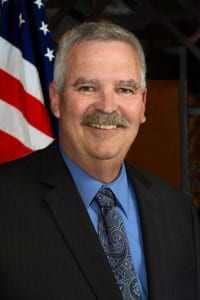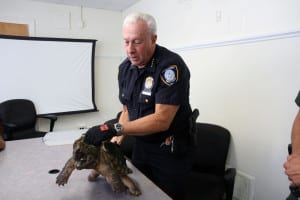Northport High School Principal Irene McLaughlin is stepping into a new role as the district’s assistant superintendent of human resources.
At the Northport-East Northport school board meeting on Sept. 10, board President Andrew Rapiejko announced McLaughlin’s new role. He said both he and the board were “very excited,” and to that, the audience offered a long round of applause.
McLaughlin is just as excited.

“I’ve had chances to pursue administration roles in other districts, but I didn’t want to,” the principal said in a phone interview this week. “Northport is such a great place for teachers, students, and parents, and I wanted to stay here.”
McLaughlin has been at the district for 31 years. She kicked off her career with the district straight out of college as a part-time health education teacher at Northport Middle School in 1984. From there, she worked at Norwood Avenue Elementary, Fifth Avenue Elementary and Pulaski Road Elementary schools until she became a teacher at the high school in 1992. She was promoted to principal of Northport High School in 2003 from assistant principal. This year marks the start of her 13th year as principal of the school.
“I will miss the high school,” she said. “Even when I worked at other schools, I was coaching here. My roots are deep here at the high school.”
McLaughlin is following Rosemarie Coletti, who stepped down from the position in June of this year. Lou Curra is currently the interim assistant superintendent of human resources.
“I am looking forward to getting more involved in district wide decisions,” she said. “I want to expand my scope, and learn more about how the entire district works and not just the high school.”
The responsibilities for assistant superintendent of human resources include recruiting, hiring and maintaining the nearly 1,000-person staff of the Northport-East Northport school district.
McLaughlin’s official start date is November 2, however she said that if the process of finding a new principal for the high school takes a bit longer, she may stay at her post past the beginning of November.
“I want it to be a smooth transition for the students and staff,” she said.
McLaughlin moved her family to the district when they were young because she said she knew Northport was a special place for kids to grow up. She currently resides there with her daughter, Kelly. Her son Michael graduated from Northport High School this May.
“My love for the district is really evident,” she said. “I am committed to the success of the district, and making an impact on more than just the high school.”
















